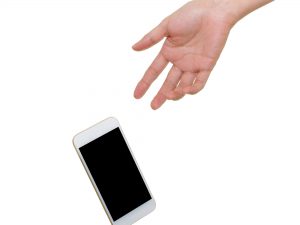 The New Year is a time to look forward and consider making changes to improve health, wellness and overall happiness. Typical resolutions revolve around being more physically active, eating better, spending quality time with loved ones and breaking bad habits. Dr. Megan Moreno, adolescent medicine specialist and a researcher at Seattle Children’s Research Institute, offers an idea that can help parents and teens free up time to focus on those resolutions or can be a worthy resolution of its own – a social media detox.
The New Year is a time to look forward and consider making changes to improve health, wellness and overall happiness. Typical resolutions revolve around being more physically active, eating better, spending quality time with loved ones and breaking bad habits. Dr. Megan Moreno, adolescent medicine specialist and a researcher at Seattle Children’s Research Institute, offers an idea that can help parents and teens free up time to focus on those resolutions or can be a worthy resolution of its own – a social media detox.
“A social media detox is a period of time in which a person steps away from using social media and reflects on the positives and negatives of being connected via social networks,” said Moreno. “Changing up your family’s social media use in the New Year can benefit you in many ways, from freeing up time for making healthy lifestyle changes, to improving your outlook on life.”
Social media detox leads to gift of time
Moreno’s Social Media and Adolescent Health Research Team (SMAHRT) did a pilot study where 20 college students deactivated Facebook for a week. Deactivating a Facebook account removes it in an impermanent way so that other users can tell the account is not in use but users can reactivate it at any time. Nineteen of the participants were able to follow through for the weeklong break from social media, and a large majority of the students liked the break.
“It gave them the chance to reconnect with family and friends in person,” said Moreno. “They realized they can call a friend and get a cup of coffee to socialize, and they found they had extra time to do things, like clean the house or work out.”
The detox period, and the reflection that the students did during and after, resulted in many of them changing their behavior after the week was over as well.
“When they went back to Facebook after the week was up, most did so with less frequency,” said Moreno.
Less frequent social media use results in more time for other activities, because, as we all know, it’s hard not to get sucked in to spending more time than planned when you go on a social networking site.
Connection and social comparison
The number one reason why most people say they use social media is that it helps them connect with others. Research has shown, though, that for many people using social media actually increases feelings of isolation and loneliness. There’s also evidence that frequent social media use may be linked to depression and other mental health problems.
Most users share the “highlight reels” of their life, not their everyday stories. People share the best photos of themselves, proud moments, beautiful surroundings and group activities. The more time spent on social media, the more opportunity to compare yourself to others, and possibly feel worse about your life. This can be especially true for adolescents who more easily fall into equating numbers of followers, likes and Snapchats received with popularity and self-worth. Moreno shared an example of this, related to body image.
“Several studies on social media use and body image have concluded that the more time spent looking at friends’ photos on social media, the less you’ll like your own body,” said Moreno. “Cutting back on social media is a way to take a break from comparing yourself to others online.”
Getting started with a social media detox
Based on her research and experience with patients, Moreno offers families these tips for taking a social media break:
- Get the whole family to do it together. It’s easier to break a habit when others are doing it too, and parents are the most effective models of behavior for kids.
- Agree on a reasonable length of time. Start small so that you can achieve the goal.
- Turn off notifications and consider deleting apps to make it easier to resist temptation.
- Think about how it will feel to disconnect. What worries does each family member have?
- Decide whether you each want to announce that you’re tuning out for a period of time so your followers will know.
- Make time to reflect on how you’re feeling toward the beginning, middle and end of the detox. How has the feeling changed or stayed the same?
“There will likely be moments when you’re tempted to check social media,” said Moreno. “When you get urges to check, simply acknowledge the discomfort. It will pass quickly. Sit for 20 seconds and you will see that you’re OK and that you will be able to move on and do something else.”
Apply learnings
After the detox period, use reflections to consider making lasting changes, such as keeping notifications turned off and only checking social media for a set amount of time at a certain time of day. Consider cleaning up profiles, unfollowing people or businesses that push content that makes you or your child feel bad. Agree to have device-free family dinners and keep devices out of bedrooms when it’s time to sleep. Create a Personalized Family Media Plan. Consider setting a time for a detox period in the future.
“Taking occasional social media breaks or setting up limits can bring you back to center,” said Moreno.
Resources:
- Adolescent Medicine Resources
- Common Sense Media
- Teaching Kids to Be Smart About Social Media

